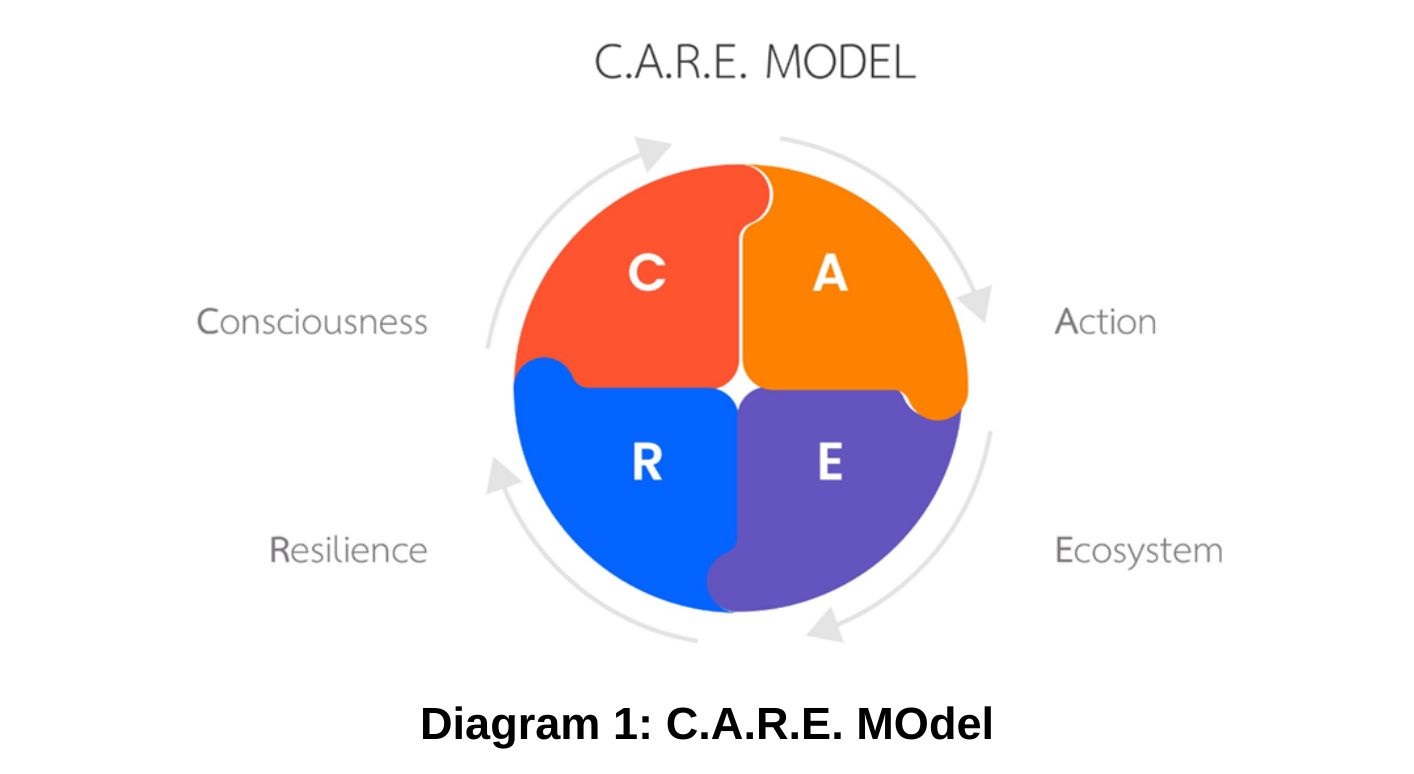The Application of the 15th Royal Working Principle : Cultivating the Forest in People’s Hearts
Keywords:
Planting Forests in the Hearts of People, Ecological Consciousness, Sustainable Development, Royal PrinciplesAbstract
The 15th principle of King Bhumibol Adulyadej The Great’s royal working principles, “Planting Forests in the Hearts of People,” emphasizes that sustainable natural resource conservation must begin with the cultivation of environmental consciousness among individuals.
This article aims to philosophically analyze the concept of “Planting Forests in the Hearts of People” and propose practical approaches to fostering long-term ecological awareness. The analysis is framed through the lenses of environmental philosophy, virtue ethics, social philosophy, and Buddhist philosophy, all of which suggest that lasting behavioral change must originate from within the human mind.
The article presents the C.A.R.E. model, consisting of four stages: (1) Consciousness – cultivating awareness, (2) Action – engaging in practice, (3) Resilience – strengthening sustainability, and (4) Ecosystem – integrating environmental values into social and ecological systems. This model aligns with King Bhumibol’s vision, which underscores the importance of inner transformation as a foundation for environmental conservation.
The study finds that ecological awareness can be developed through experiential learning, community knowledge-building, and promoting organizational cultures that value nature. This article suggests that the C.A.R.E. model may serve as a guiding framework for encouraging behavioral transformation and advancing the goals of sustainable development. However, the concept of “Planting Forests in the Hearts of People” has certain limitations in terms of measurable outcomes and may require integration with broader structural factors to achieve large-scale transformation effectively.
References
ปกรณ์กิตติ์ ม่วงประสิทธิ์ และคณะ. (2563). ศาสตร์พระราชากับการพัฒนาการบริหารการศึกษาอย่างยั่งยืน, วารสารศึกษาศาสตร์ มหาวิทยาลัยศิลปากร, 18(2), 21-42.
พระมหาชินวัฒน์จกฺกวโร (กุยรัมย์). (2562). การอนุรักษ์สิ่งแวดล้อมเชิงพุทธของพระบาทสมเด็จพระปรมินทรมหา ภูมิพลอดุลยเดช รัชกาลที่ 9 : วิเคราะห์เชิงพุทธธรรม. วารสารมหาจุฬานาครทรรศน์, 6(8), 4076-4094.
มรกต กำแพงเพชรและสวรรยา ธรรมอภิพล. (2560). หลักการจัดการสิ่งแวดล้อมเพื่อการ พัฒนาที่ยั่งยืนตามแนวทางของพระบาทสมเด็จพระเจ้าอยู่หัว. วารสารธุรกิจปริทัศน์, 9(2), 192-201.
วีระศักดิ์ บุญญดิษฐ์ และคณะ. 2564). หลักการบริหารกับการพัฒนาที่ยั่งยืนของสังคมไทย. วารสารมหาจุฬาตานีปริทรรศน์ ปริทรรศน์ มหาวิทยาลัยมหาจุฬาลงกรณราชวิทยาลัย, 3(6), 33-41.
สำนักงานคณะกรรมการพิเศษเพื่อประสานงานโครงการอันเนื่องมาจากพระราชดำริ (สำนักงาน กปร.). (2559). หลักการทรงงานในพระบาทสมเด็จพระบรมชนกาธิเบศร มหาภูมิพลอดุลยเดชมหาราช บรมนาถบพิตร. (พิมพ์ครั้งที่ 11). กรุงเทพฯ : สำนักงาน กปร.
สำนักงานนโยบายและแผนทรัพยากรธรรมชาติและสิ่งแวดล้อม. (2565). รายงานสถานการณ์สิ่งแวดล้อมของประเทศไทย พ.ศ. 2565. กรุงเทพฯ : สผ.
Aristotle. (1999). Nicomachean ethics (W. D. Ross, Trans.). Oxford University Press. (Original work published ca. 350 BCE)
Brennan, A., & Lo, Y. S. (2016). Environmental ethics. In E. N. Zalta (Ed.), The Stanford encyclopedia of philosophy (Winter 2016 Edition). [Online]. Retrieved from https://plato.stanford.edu/archives/win2016/entries/ethics-environmental/ [30 March 2025].
Chambers, R., & Conway, G. (1992). Sustainable rural livelihoods: Practical concepts for the 21st century. Institute of Development Studies. Brighton, UK: IDS Publishing.
Chapelle, J., et al. (2019). Using drones for reforestation: A new frontier in ecological restoration. Environmental Science Journal, 45(3), 67-82.
Dewey, J. (1997). Experience and education. Macmillan. (Original work published 1938)
Hardin, G. (1968). The tragedy of the commons. Science, 162(3859), 1243-1248.
Hart, S. L., & Milstein, M. B. (2003). Creating sustainable value. Academy of Management Executive, 17(2), 56-67.
Heidegger, M. (1977). The question concerning technology and other essays (W. Lovitt, Trans.). Harper & Row.
Leopold, A. (1949). A sand county almanac. Oxford University Press.
MacIntyre, A. (1981). After virtue: A study in moral theory. University of Notre Dame Press.
Marton, F., & Säljö, R. (1976). On qualitative differences in learning: I—Outcome and process. British Journal of Educational Psychology, 46(1), 4-11.
Naess, A. (1973). The shallow and the deep, long-range ecology movement: A summary. Inquiry, 16(1-4), 95-100.
Naess, A. (1989). Ecology, community and lifestyle (D. Rothenberg, Trans.). Cambridge University Press.
Ostrom, E. (1990). Governing the commons: The evolution of institutions for collective action. Cambridge University Press.
Ricoeur, P. (1976). Interpretation theory: Discourse and the surplus of meaning. Texas Christian University Press.
Sandel, M. (1982). Liberalism and the limits of justice. Cambridge University Press.
Sterling, S. (2010). Sustainability education: Perspectives and practice across higher education. Earthscan.
Sterling, S. (2010). Transformative learning and sustainability: Sketching the conceptual ground. Learning and Teaching in Higher Education, 5(1), 17–33.
UNDP. (2020). The future of sustainability policy: Strategies for the 21st century. New York : United Nations Development Programme.
United Nations Environment Programme. (2022). Emissions gap report 2022: The closing window – Climate crisis calls for rapid transformation of societies. Nairobi : UNEP.

Downloads
Published
How to Cite
Issue
Section
License
Copyright (c) 2025 Institute of Sufficiency Journal

This work is licensed under a Creative Commons Attribution-NonCommercial-NoDerivatives 4.0 International License.



